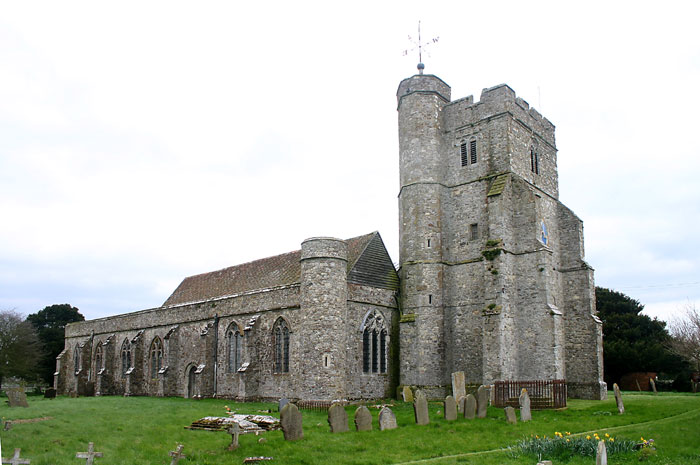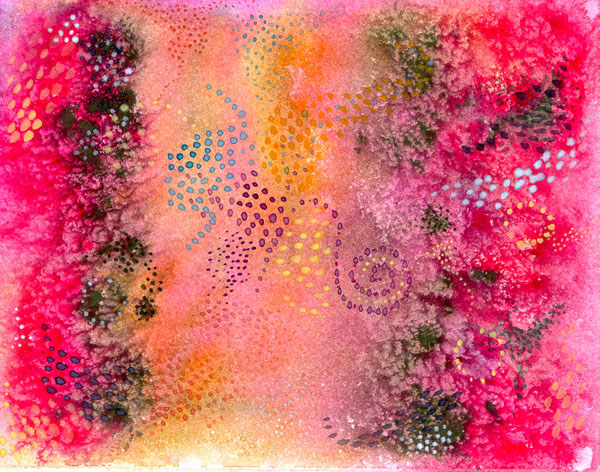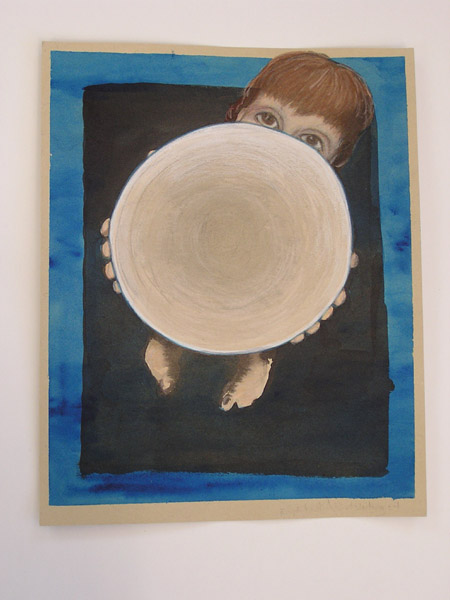Strength Comes in Numbers
Christianity is a group effort. I write this thinking of the times when our need for the strength found in a group of believers may outweigh the ability of our own faith.
Let me say first, that there is no denying that the Christian faith involves a personal commitment. Each individual must decide for his or her self and make a profession of faith, and in so doing comes into a relationship with God, through his son Jesus Christ. But that individual commitment knits us in to the Body of Christ, a larger group. And it is the need for this larger body I am speaking to now.
Vincent Donovan served as a missionary to the Masai in Tanzania for 17 years. Donovan found six Masai villages willing to talk each week for a year about Christianity. He told the people in the villages that he could not bring schools, hospitals or anything else. He wanted to learn what they knew of God and tell them about his experience with God.
He visited the village headed by an elderly Masai man named Ndangoya for a full year. At the end of that time, he went to the community and told them that he had now told them all he had to impart about Jesus. He wrote of the encounter as follows,
I had taught them everything I knew about Christianity. Now it was up to them. If they did accept it, of course, it required public baptism. So I would go away for a week or so and give them the opportunity to make their judgment on the Gospel of Jesus Christ. If they did accept it, then there would be baptism. However, baptism wasn’t automatic.Donovan then writes of a mistake he made. When he returned, he proclaimed which could not be baptized as they had not attended enough classes or listened well enough.
He writes of what happened next,
“The old man, Ndangoya, stopped me politely but firmly, ‘Padri, why are you trying to break us up and separate us? During this whole year that you have been teaching us, we have talked about these things when you were not here, at night around the fire.Donovan reports that he replied, “Excuse me, old man,” I said, “Sometimes, my head is hard and I learn slowly. “We believe,” you said. Of course you do. Everyone in the community will be baptized.”
“Yes, there have been lazy ones in this community. But they have been helped by those with much energy. There are stupid ones in the community, but they have been helped by those who are intelligent. Yes, there are ones with little faith in this village, but they have been helped by those with much faith.
“Would you turn out and drive off the lazy ones and the ones with little faith and the stupid ones? From the first day I have spoken to these people. And I speak for them now. Now on this day, one year later, I can declare for them and for all this community, that we have reached the step in our lives where we can say, ‘We believe.’”
It sounds almost scandalous here to speak of the faith of a community. Baptism is about a personal affirmation of faith, right? So how can a community make that affirmation on behalf of someone? Well, we shouldn’t accept one person’s statement of faith on behalf of another, but in an African context where community is so valued, the expression “We believe” is no weak response, but a response from each person as a community.
Jesus taught that we are not just to love God, but to also love our neighbors as ourselves. For this reason Christianity is always a team sport, a community endeavor. Find any Christian church and no matter the appropriate emphasis placed on a person’s public affirmation of faith, that affirmation takes place in community and makes one a member of that community.
Baptism always has both an individual part and a communal part. We tend to stress the individual part, while almost forgetting that baptism is not just an event in the life of an individual or even a family. Baptism is an event in the life of a congregation and an event in the whole Body of Christ.
As the elder of the Masai community said there are lazy ones and stupid ones and ones with little faith in the community. You may wonder which ones in our community are these lazy ones of less faith. Sometimes its me and sometimes its you. Each of us can be lazy about reading the Bible and praying, or slow to learn what God is teaching us, or find our faith flagging in the face of trouble.
We are all at times the lazy ones, the stupid ones, the ones with little faith. However, you can also be the one who is energetic, and intelligent and the one with great faith. Others can draw strength from your strength. That’s what a community of faith does. We bear one another’s burdens and share one another’s joys.
Some folks shy away from church. Perhaps because they have been hurt by a church before or by someone they thought was a good Christian. For whatever reason, they want to go it alone in faith.
Going it alone in faith will only get so far. You might feel that you have the faith to go it alone, but eventually life will turn around and you will find yourself less energized. That’s why you need a community. Church was never optional. Community was the norm for Jesus and his disciples and remains it to this day.
We are stronger than I am alone. Sometimes I may or may not have the faith I need to pray, but we do. I may not have the strength to get through another week, but we have that strength. We can help one another through seasons of doubt and uncertainty.
Fall is a great time for a fresh start. If you read this knowing that you are not currently connected to a church home, please be encouraged to turn the page, look through the church listings and find a place to go worship this Sunday.
You surely won’t find a perfect church. But, you will find a place perfectly suited to help you as you journey closer to God, for that is a journey better undertaken with others.
(The Rev. Frank Logue is pastor of King of Peace Episcopal Church in Kingsland.)
Labels: religion column
 At auction tonight, King of Peace Episcopal Day School, Inc.—our separate 501(c)3 that runs our school—came to an agreement on a very good price for 11.69 acres of land in a great location a couple of miles east of the church. The Preschool will remain at our church for always, but this new land will allow us to grow a private school, intending to provide K-8 in the coming years. This was an initial part of our vision and it is rewarding to secure this future and to begin to move toward that future as soon as possible. We also hope to add infant care so that in time we care for children from 6 months through the eighth grade and perhaps beyond.
At auction tonight, King of Peace Episcopal Day School, Inc.—our separate 501(c)3 that runs our school—came to an agreement on a very good price for 11.69 acres of land in a great location a couple of miles east of the church. The Preschool will remain at our church for always, but this new land will allow us to grow a private school, intending to provide K-8 in the coming years. This was an initial part of our vision and it is rewarding to secure this future and to begin to move toward that future as soon as possible. We also hope to add infant care so that in time we care for children from 6 months through the eighth grade and perhaps beyond.



 Sociologists have a theory of the looking-glass self: you become what the most important person in your life (wife, father, boss, etc.) thinks you are.
Sociologists have a theory of the looking-glass self: you become what the most important person in your life (wife, father, boss, etc.) thinks you are. 

 Make the people sit down," replies the Lord. The meal is blessed, served, then eaten, and--when all are satisfied--there is enough left over to fill 12 baskets. Abundance!
Make the people sit down," replies the Lord. The meal is blessed, served, then eaten, and--when all are satisfied--there is enough left over to fill 12 baskets. Abundance!





 In the one-sixth gravity of the moon, the wine slowly curled and gracefully came up the side of the cup. Then I read the Scripture, "I am the vine, you are the branches. Whosoever abides in me will bring forth much fruit....Eagle's metal body creaked. I ate the tiny Host and swallowed the wine. I gave thanks for the intelligence and spirit that had brought two young pilots to the Sea of Tranquility. It was interesting for me to think: the very first liquid ever poured on the moon, and the very first food eaten there, were the communion elements.
In the one-sixth gravity of the moon, the wine slowly curled and gracefully came up the side of the cup. Then I read the Scripture, "I am the vine, you are the branches. Whosoever abides in me will bring forth much fruit....Eagle's metal body creaked. I ate the tiny Host and swallowed the wine. I gave thanks for the intelligence and spirit that had brought two young pilots to the Sea of Tranquility. It was interesting for me to think: the very first liquid ever poured on the moon, and the very first food eaten there, were the communion elements.






























 Today, I am traveling to Anaheim, California. I am going there to serve through July 18 as a clergy deputy for the Diocese of Georgia in the once every three years General Convention of The Episcopal Church. Bill Bruce is also making the journey for Bill to serve as a lay alternate deputy to the convention. Bill will be on hand if a member of the lay deputation needs to leave. He will also spell deputies out so that we maintain a full deputation on the floor for the full meeting.
Today, I am traveling to Anaheim, California. I am going there to serve through July 18 as a clergy deputy for the Diocese of Georgia in the once every three years General Convention of The Episcopal Church. Bill Bruce is also making the journey for Bill to serve as a lay alternate deputy to the convention. Bill will be on hand if a member of the lay deputation needs to leave. He will also spell deputies out so that we maintain a full deputation on the floor for the full meeting.
 Such people do not realize that the Christ who spoke then and the Christ who speaks now throughout the whole world is one and the same.
Such people do not realize that the Christ who spoke then and the Christ who speaks now throughout the whole world is one and the same.










0 Comments:
Post a Comment
<< Home